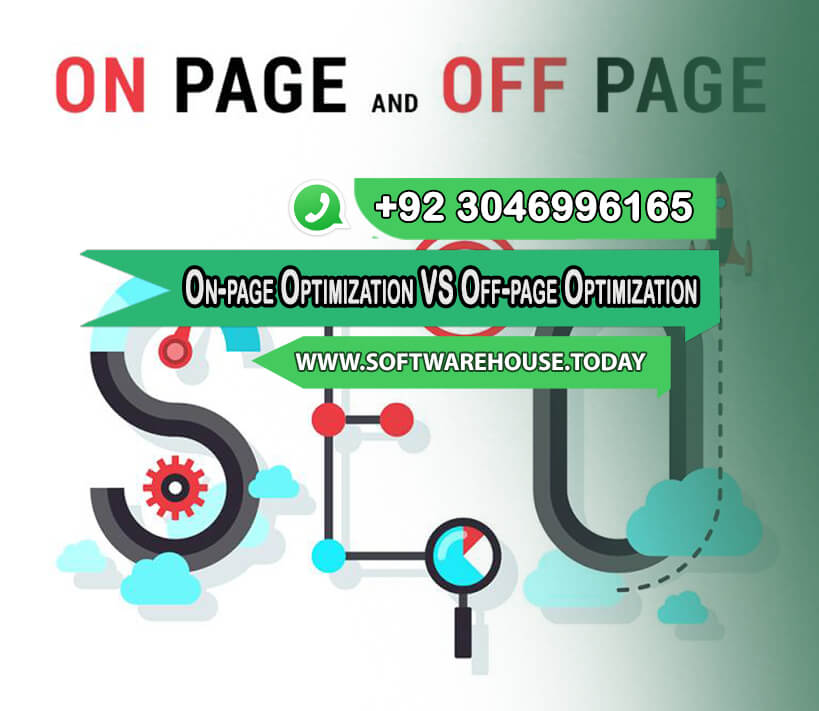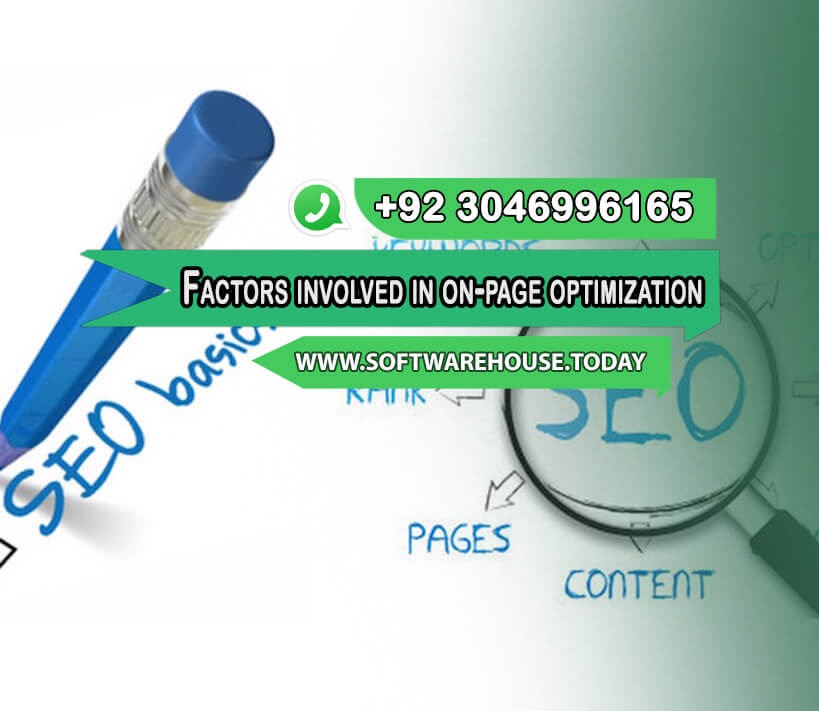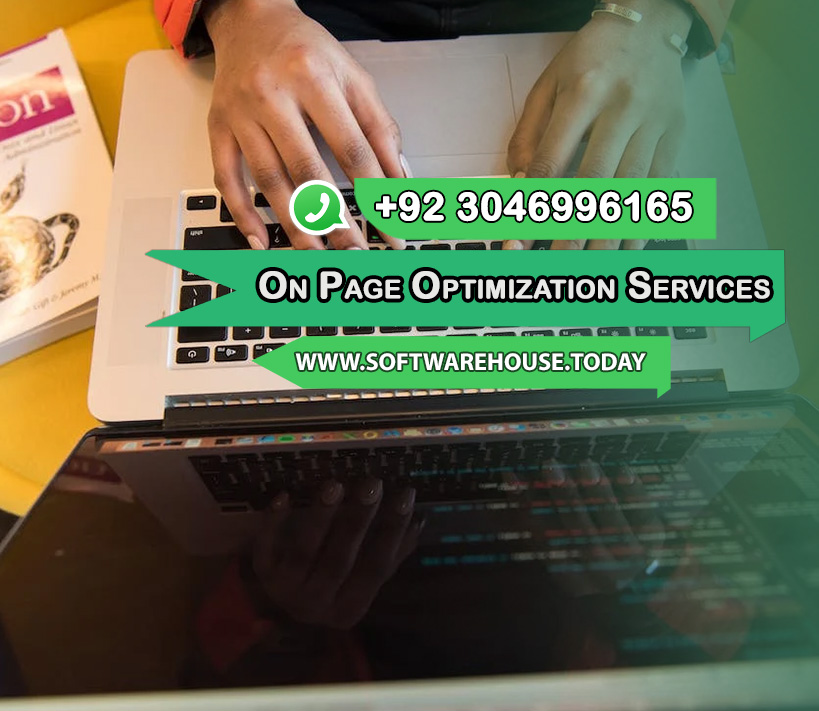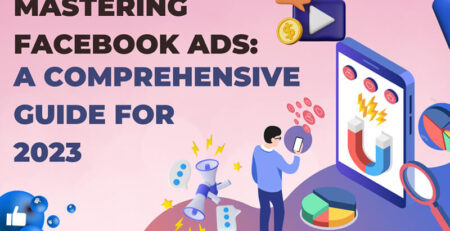Are you struggling to get your website to show up on the first page of search engine results? Are you finding it challenging to attract new customers or visitors to your site? If you answered yes to any of these questions, it’s time to consider the benefits of on-page optimization services.
At our company, we offer a wide range of on-page optimization services aimed at helping you achieve the results you desire. Our expert team uses various optimization techniques, including keyword research, content optimization. And HTML optimization, to improve your site’s search engine ranking, increase traffic, and ultimately boost your business’s revenue. To begin, we analyze your site’s current performance to identify areas that require improvement, and then we create a tailored optimization plan to address your specific needs. One of the critical elements of on-page optimization is keyword research. We use advanced tools to research keywords, analyze search volume and competition, and determine best keywords to target for business.
Once we’ve identified your target keywords, we work with you to optimize your website’s content naturally and effectively. This involves optimizing your page titles, Meta descriptions, headings, and incorporating keywords into your website design content. At our company, we strongly believe that on-page optimization is a vital component of any successful digital marketing strategy. By optimizing your website’s content and structure, we help you attract more visitors, increase engagement, and ultimately drive more revenue. By choosing our on-page optimization services, you can take your website to the next level and achieve your digital marketing goals. Let our experts help you increase your online visibility, attract more visitors, and achieve greater success in your business.
Key differences between on-page Optimization and off-page Optimization

Search engine optimization (SEO) involves different techniques to improve your website’s visibility and ranking on search engines. On-page SEO and off-page SEO are two key approaches to optimizing your website, but they have distinct strategies and focuses.
On-page SEO involves optimizing your website’s content, HTML source code, and structure to make it more user-friendly and relevant to search engines. This includes optimizing your website’s headings, titles, Meta descriptions, images, internal links, and page speed. By doing so, on-page SEO ensures that search engine bots can easily crawl and index your website. Leading to better visibility on search engine results pages.
Off-page SEO, on the other hand, is all about building your website’s reputation and authority outside of your website. This involves various activities such as building high-quality backlinks, social media marketing, guest blogging, and influencer marketing. Off-page SEO aims to establish your website as a trustworthy and valuable resource in your industry. Leading to higher search engine rankings and more traffic to your website.
While on-page and off-page SEO techniques have different focuses, they are both crucial for achieving a successful SEO strategy. A combination of both approaches can help you improve your website’s visibility, increase traffic, and ultimately drive more revenue for your business.
Key factors that are involved in on-page optimization

SEO Title Tag:
The title tag is a brief and concise description of the content on a webpage. The title tag should include relevant keywords and be unique to each page.
Meta Description:
The Meta description is a short summary of the content on a webpage that appears in the SERPs. The Meta description should be informative, enticing, and include relevant keywords.
Headings:
Headings are used to break up the content on a webpage and make it easier to read. They also help search engines to understand the structure and hierarchy of the content.
URL Structure:
The URL of a webpage should be descriptive and include relevant keywords. It should also be short, simple, and easy to remember.
Image Optimization:
Images on a webpage should be optimized with relevant alt tags and file names that include relevant keywords.
Content:
The content on a webpage should be high-quality, informative, and engaging. It should also include relevant keywords and be structured in a way that is easy to read and understand.
Internal Linking:
Internal linking helps to establish a hierarchy and structure within a website, as well as helps search engines to understand the relationships between different pages on a website.
Page Speed:
Page speed is an important factor in on-page optimization, as slow loading pages can negatively impact user experience and search engine rankings.
Mobile Optimization:
With the increasing use of mobile devices, it is important to ensure that your website is mobile-friendly and optimized for mobile users.
Schema.org:
Schema.org is a markup language that helps search engines understand the content on a webpage. By adding structured data markup to a webpage, search engines can display rich snippets, such as reviews, ratings, and other information, in the SERPs, which can improve click-through rates and overall visibility.
The Open Graph:
The Open Graph protocol is used to optimize webpages for social media platforms, such as Facebook and LinkedIn. By adding Open Graph tags to a webpage, social media platforms can display rich media content, including images and descriptions, which can increase engagement and traffic.
Twitter Card:
Twitter Card is a similar concept to the Open Graph, but specifically for Twitter. By adding Twitter Card tags to a webpage, you can optimize it for Twitter, allowing for richer and more engaging tweets.
Website AMP:
AMP (Accelerated Mobile Pages) is a Google-backed project that enables websites to load faster on mobile devices. By optimizing webpages for AMP, you can improve page speed, user experience, and search engine rankings.
Meta viewport:
The Meta viewport tag is used to optimize webpages for mobile devices, by instructing the browser to display the webpage at the appropriate scale and resolution for the device. By optimizing webpages for mobile devices, you can improve user experience and search engine rankings.
Robots.txt:
The robots.txt file is used to communicate with search engine bots, instructing them which pages on a website should be crawled and indexed, and which pages should be excluded. By properly configuring the robots.txt file, you can ensure that search engine bots crawl and index only the pages that you want them to.
XML Sitemaps:
XML Sitemaps are used to communicate with search engines, providing information about the structure and hierarchy of a website. By creating an XML Sitemap, you can help search engines crawl and index your website more efficiently, improving visibility and search engine rankings.
Favicon:
The favicon is the small icon that appears next to the website’s name in the browser tab. By including a favicon, you can improve the visual appeal and recognition of your website, making it easier for users to find and navigate
Conclusion
In conclusion, on-page optimization plays a critical role in the success of any digital marketing campaign. By strategically optimizing your website’s content, headers, Meta descriptions, and other on-page elements, we can significantly improve your website’s ranking in search engine results, drive more organic traffic, and ultimately increase your conversion rates. If you’re currently facing challenges with your website’s performance, it’s high time to consider taking advantage of our comprehensive on-page optimization services. Don’t hesitate to get in touch with us today to learn more about how we can help you achieve your digital marketing objectives.
With our expertise and tailored approach, we can elevate your business to new heights and enable it to stand out in today’s fiercely competitive online landscape. Take the first step towards unlocking the full potential of your website by contacting us now. Let us be your partner in driving tangible results and maximizing your online presence.






 i am Ahsan.
i am Ahsan.
Leave a Reply